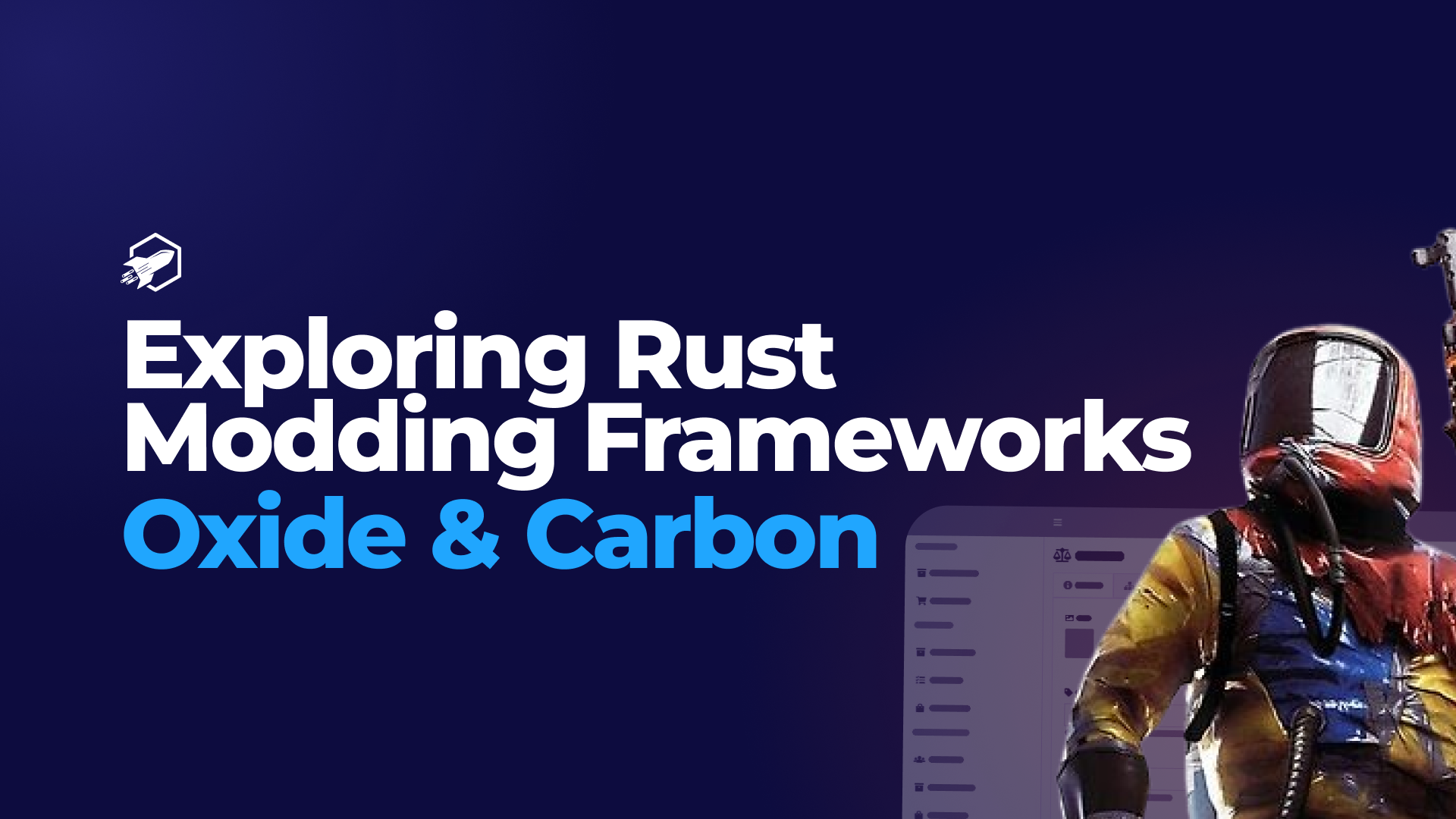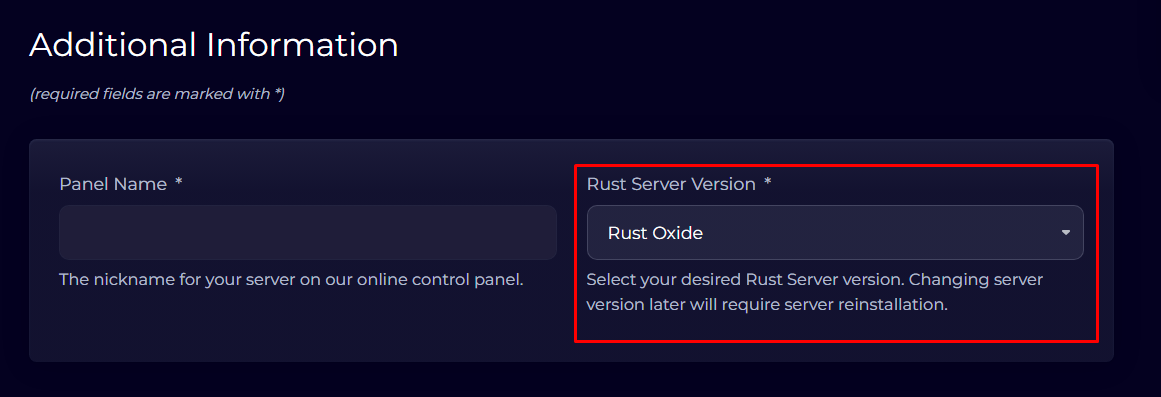
Exploring Rust Modding Frameworks: Oxide and Carbon
Learn the difference between the two most popular Rust Modding Frameworks: Oxide and Carbon. Find which one suits your needs best.
The world of gaming is constantly evolving, with modding playing a crucial role in offering a unique gaming experience from server to server. Rust, the multiplayer survival game developed by Facepunch Studios, has created a dedicated community of modders who strive to push the boundaries of gameplay through custom modifications. Therefore, there are two modding frameworks that you can choose when making your own Rust server: Oxide and Carbon.
Oxide, the most popular modding framework, has long been the go-to framework for Rust server administrators that wanted to create a custom experience on their server, that would differenciate them from others. On the other hand, Carbon, a newer contender, has emerged with a promise of modern features, enhanced performance, and a fresh approach to modding Rust.
This article dives into the features of both Oxide and Carbon, providing a comprehensive comparison of their functionalities, performance, and ease of use. Whether you’re an experienced Rust server administrator or a newcomer, understanding the strengths and weaknesses of these two frameworks is essential.
Oxide
Oxide is a widely-used modding framework for Rust, offering a comprehensive suite of tools and features for server owners and modders. With Oxide, server owners can install and manage plugins that can alter virtually every aspect of Rust gameplay, from introducing new items and crafting recipes to modifying player behavior and AI.
Installation
With RocketNode, installing Oxide as it easy as it could get. By following this simple tutorial, you’ll have it done in no time.
Installing Plugins
When it comes to getting plugins on your server, while using the Oxide framework, you’ll have to go to uMod and there you will find over 1400 plugins. Those can vary from plugins that can change the way the pvp works on your server, the gathering rates, to even plugins that give administrators more control over the server. If you want to learn how to install plugins using Oxide, please follow this article.
Carbon
Carbon is a powerful, self-updating framework built for performance and stability. It maintains full backward compatibility with all Oxide plugins and leverages the latest C# and Harmony libraries, providing developers with the tools to unleash their creativity.
Installation
At RocketNode, when purchasing a Rust server, you have the option to choose between the normal Rust egg, or the Carbon one. In order to install Carbon onto your server, you just have to choose it from the dropdown option.

Installing Plugins
Simply place the plugin into the /carbon/plugins folder or, for Harmony, the /carbon/harmony folder. The plugin will load automatically, provided that ScriptWatchers is enabled in your Carbon config file.
If it’s not enabled, you can manually load the plugin with c.load plugin-name. To reload a plugin, use c.reload plugin-name, and to unload a plugin, use c.unload plugin-name, replacing “plugin-name” with the actual name of the plugin. Remember, the name is case-sensitive, so ensure you type it correctly.
How do I know when to choose Carbon or Oxide?
According to a server maintenance expert, Carbon tends to outperform Oxide in terms of overall server stability, especially when running mods and scripts. However, both frameworks have their pros and cons. For a server with heavy modding and scripting, Carbon is recommended due to its enhanced stability. On the other hand, for lighter modding or scripting needs, Oxide is a suitable choice.
Drawing a parallel to Minecraft mod loaders like Forge and Fabric, each framework has its own set of advantages depending on the specific requirements of the server. For a more tailored recommendation, it is helpful to consider the type of server being run, including factors such as player population and the number of plugins in use. Providing these details can help in selecting the most appropriate framework for your Rust server.
Conclusion
In conclusion, both Oxide and Carbon bring unique strengths to the Rust modding community. Oxide, with its extensive library and established reputation, is great for lighter modding needs. Carbon, on the other hand, excels with its performance and stability, making it perfect for heavy modding and scripting. At RocketNode, we offer premium Rust hosting that supports both frameworks, ensuring your server runs smoothly no matter which you choose. By considering your server’s specific needs, such as player population and the amount of modding, you can pick the best framework for an enhanced Rust experience, all backed by RocketNode’s reliable hosting.
your hosting partner
RocketNode offers fast and affordable game and VPS hosting solutions on reliable and efficient hardware with AMD Epyc architecture and NVME storage to assure high performance.
See games & pricing
